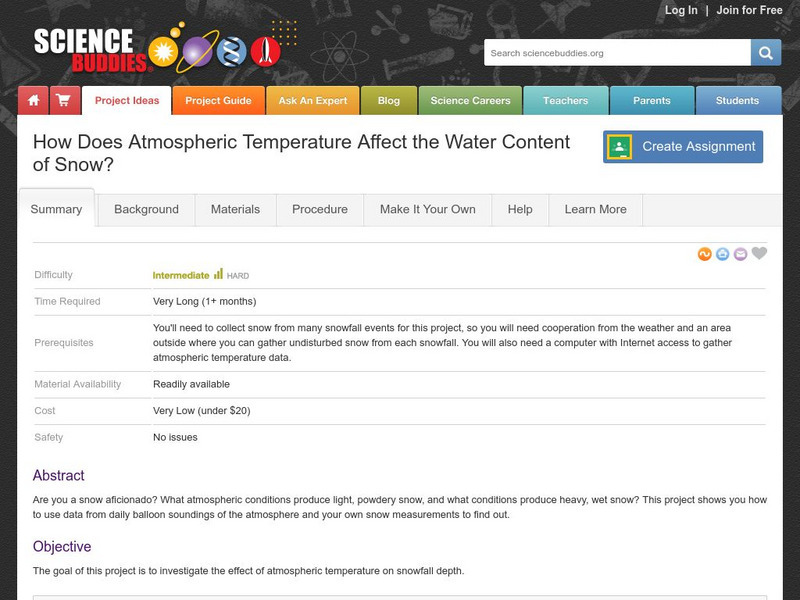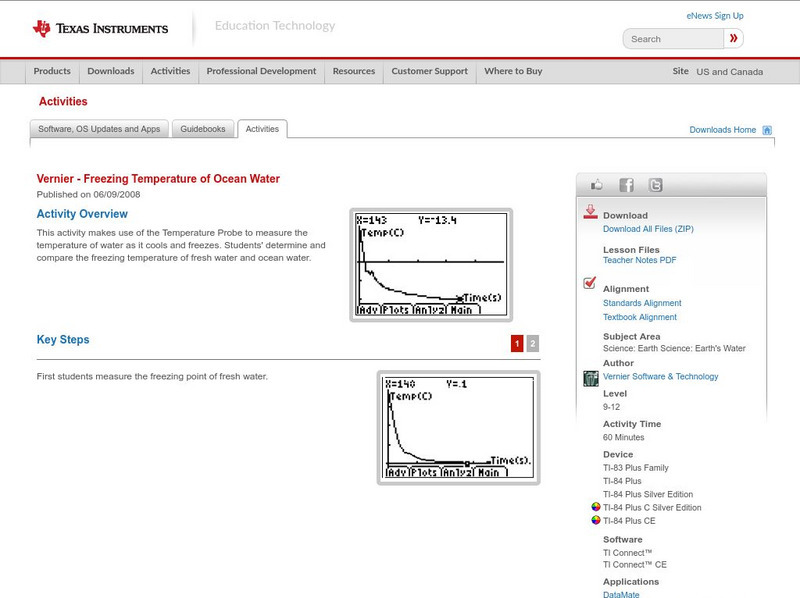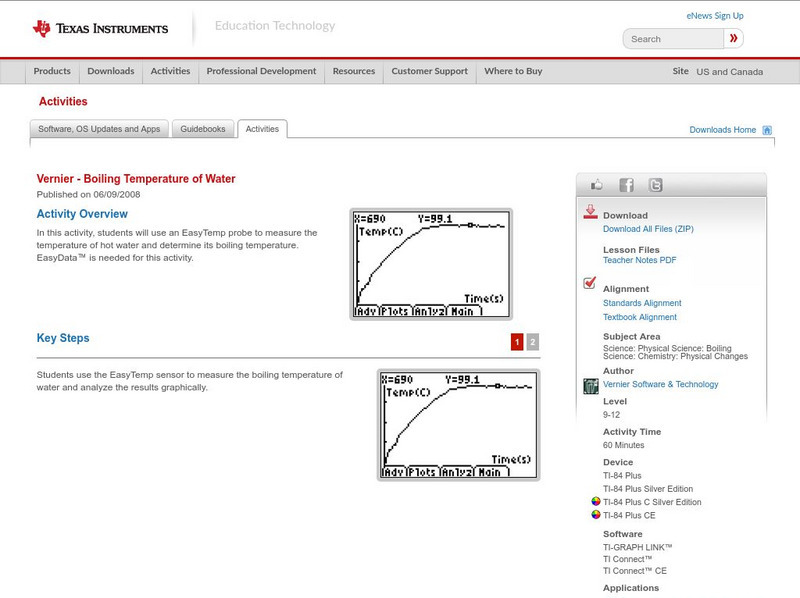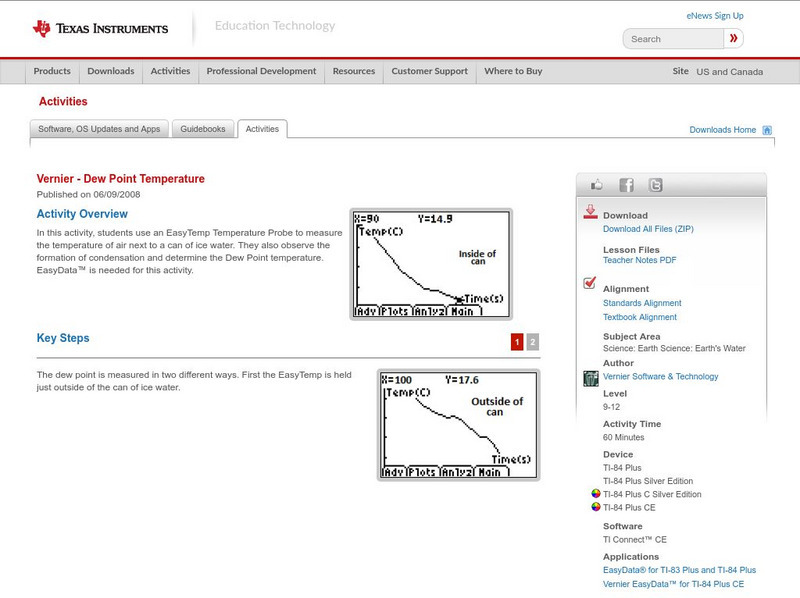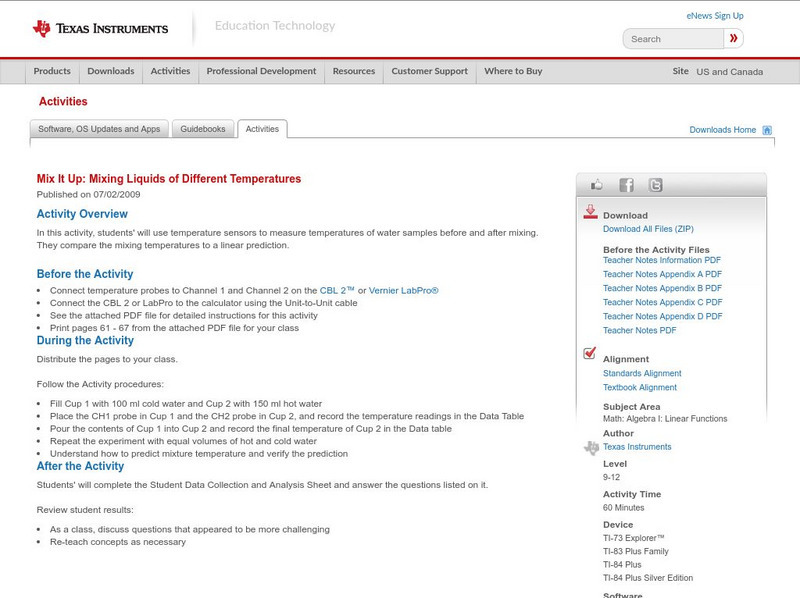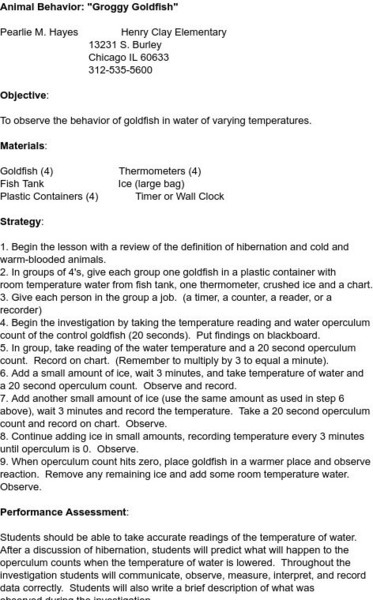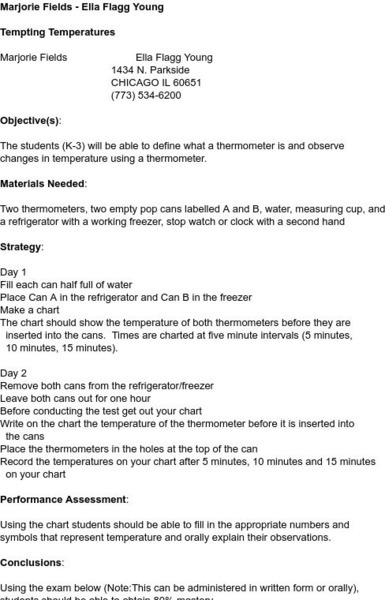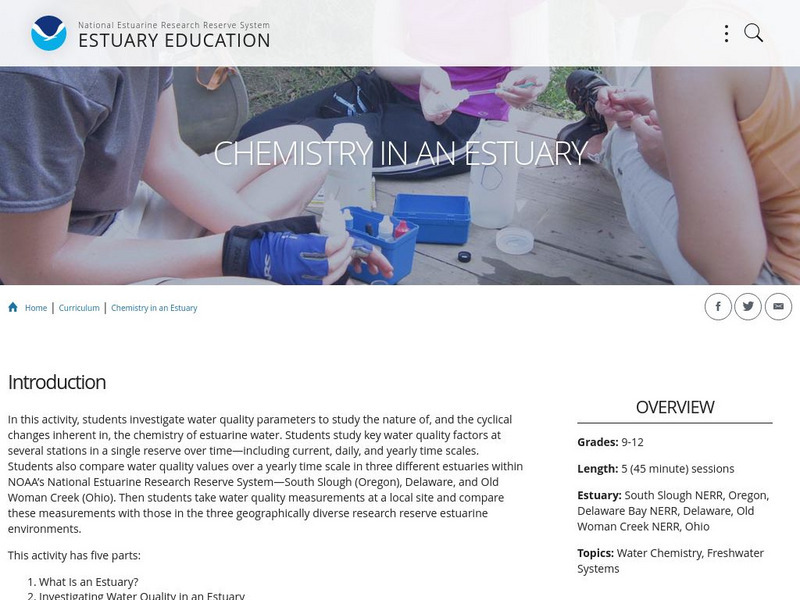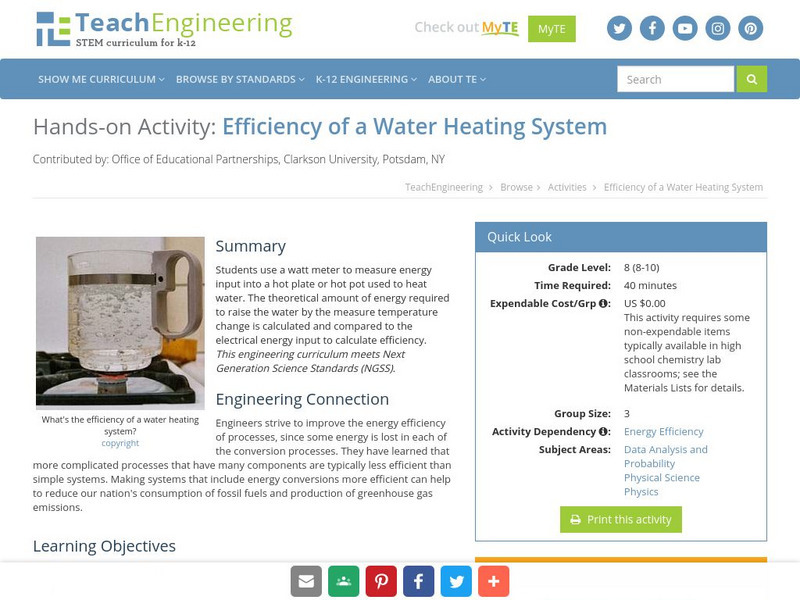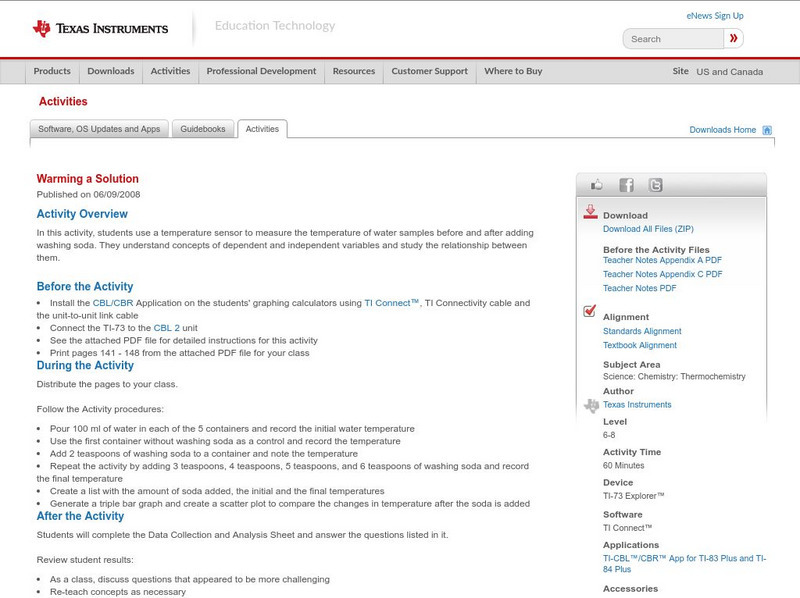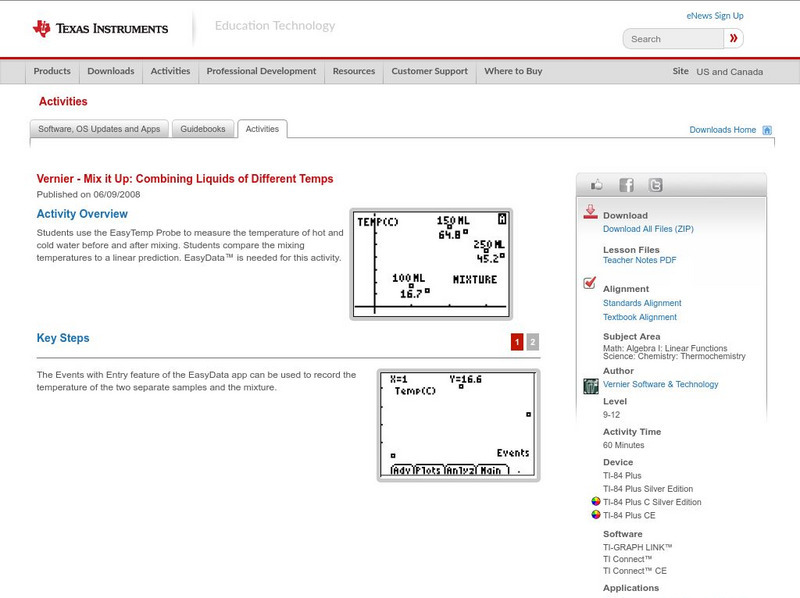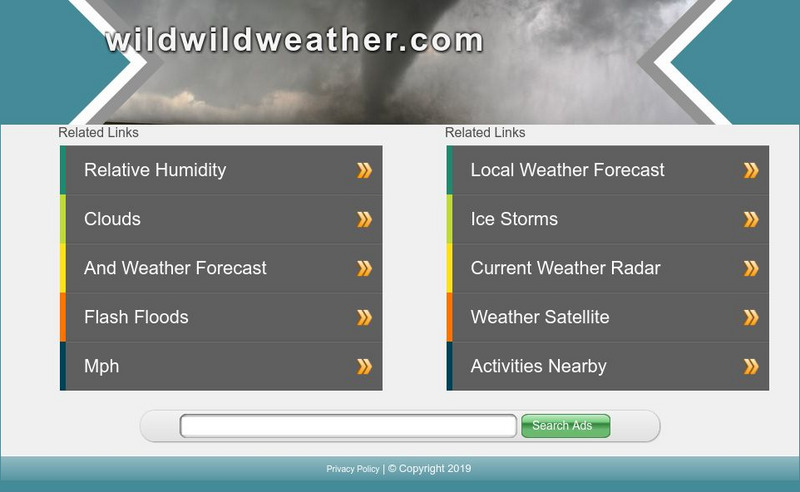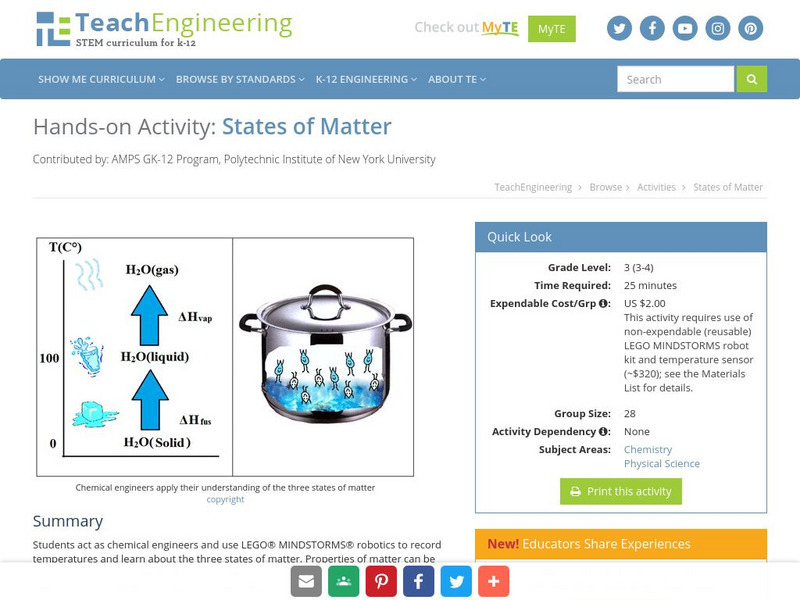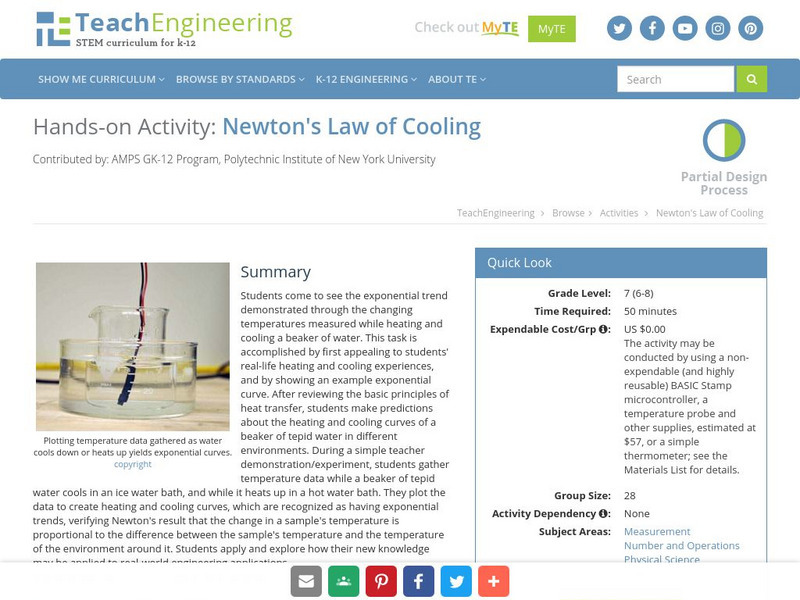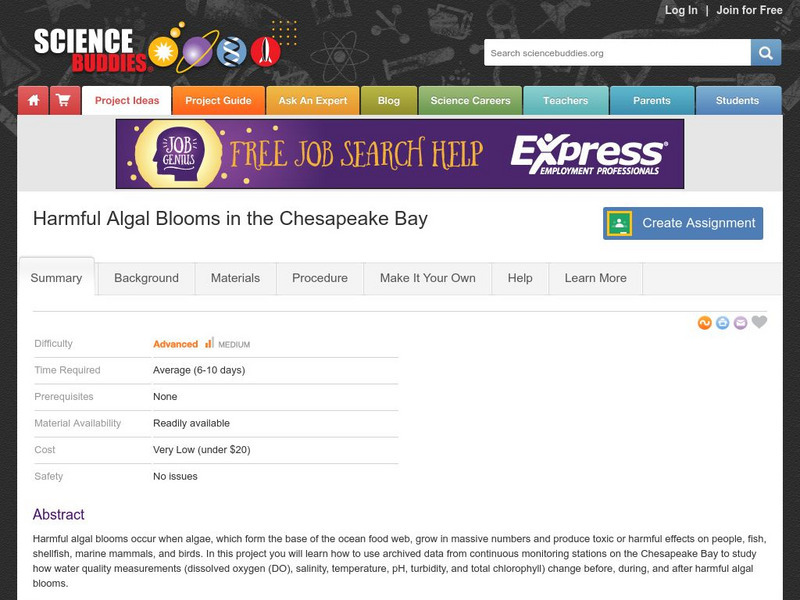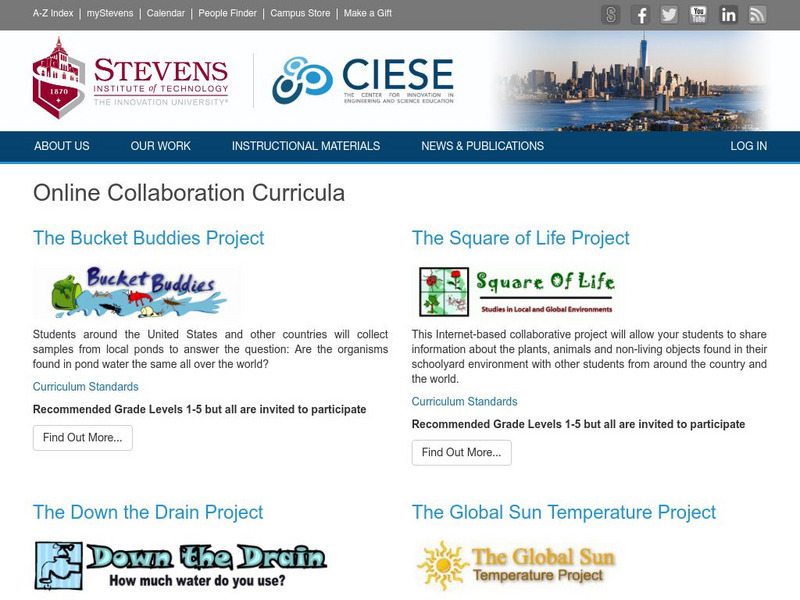Science Buddies
Science Buddies: I'm Trying to Breathe Here! Dissolved Oxygen vs. Temperature
To survive, we need oxygen in the air we breathe. Oxygen is also essential for most aquatic organisms, but there is much less oxygen available in water than in air. Learn how to measure dissolved oxygen and then see how oxygen...
US Geological Survey
Usgs: Common Water Measurements
This site from the U.S. Geological Survey provides great definitions of seven measurements that can be taken on water. Includes pH, dissolved oxygen, and turbidity. Click Home to access the site in Spanish.
Science Buddies
Science Buddies: How Atmospheric Temperature Affects the Water Content of Snow?
If you're lucky enough to live in a place that gets snow in winter, you know that the feel of the snow can vary a lot. Sometimes it can be light and fluffy, and other times heavy and wet. This project shows you how to use data from daily...
Concord Consortium
Concord Consortium: Stem Resources: Relative Humidity Measurement
Using the wet bulb-dry bulb method, students will compare the temperature of a dry temperature sensor and a wet temperature sensor. By comparing the temperatures, students will be able to find the relative humidity. After completing the...
Texas Instruments
Texas Instruments: Freezing Temperature of Ocean Water
This activity makes use of the Temperature Probe to measure the temperature of water as it cools and freezes. Students' determine and compare the freezing temperature of fresh water and ocean water.
Texas Instruments
Texas Instruments: Boiling Temperature of Water
In this activity, students can use an EasyTemp probe to measure the temperature of hot water and determine its boiling temperature. EasyData is needed for this activity.
Other
Idaho Department of Environmental Quality: Common Water Quality Measures
An organized resource highlighting properties of freshwater and water quality concerns.
Texas Instruments
Texas Instruments: Dew Point Temperature
In this activity, students use an EasyTemp Temperature Probe to measure the temperature of air next to a can of ice water. They also observe the formation of condensation and determine the Dew Point temperature. EasyData is needed for...
Texas Instruments
Texas Instruments: Mix It Up: Mixing Liquids of Different Temperatures
In this activity, students' will use temperature sensors to measure temperatures of water samples before and after mixing. They compare the mixing temperatures to a linear prediction.
Science and Mathematics Initiative for Learning Enhancement (SMILE)
Smile: Animal Behavior
Lesson plan that allows students to investigate the effect of water temperature on fish behavior. Students measure, collect data, and interpret the results.
Science and Mathematics Initiative for Learning Enhancement (SMILE)
Smile: Tempting Temperatures
In this lesson plan students learn how to use a thermometer and compare changes in temperature using water in the fridge and water in the freezer. Helps students create charts to analyze data.
NOAA
Noaa: Estuaries 101 Curriculum: Chemistry in an Estuary
This activity introduces students to the complex chemistry of estuarine water. Students investigate how chemical and physical water quality factors-pH, temperature, dissolved oxygen, and salinity-change and interact over varying time...
TeachEngineering
Teach Engineering: Efficiency of a Water Heating System
Students use a watt meter to measure energy input into a hot plate or hot pot used to heat water. The theoretical amount of energy required to raise the water by the measure temperature change is calculated and compared to the electrical...
Texas Instruments
Texas Instruments: Warming a Solution
In this activity, students use a temperature sensor to measure the temperature of water samples before and after adding washing soda. They understand concepts of dependent and independent variables and study the relationship between them.
Texas Instruments
Texas Instruments: Mix It Up: Combining Liquids of Different Temps
Students use the EasyTemp Probe to measure the temperature of hot and cold water before and after mixing. Students compare the mixing temperatures to a linear prediction. EasyData is needed for this activity.
Science Education Resource Center at Carleton College
Serc: Interdisciplinary Field Investigations of a Campus Pond
The primary activity described here is measurement of sub-surface water properties in a local pond (e.g., temperature and dissolved oxygen).
Dan Satterfield
Dan's Wild Weather: Humidity
Explains how dew point is used to show the amount of moisture in the air. Gives an activity for measuring the dew point at home.
TeachEngineering
Teach Engineering: States of Matter
Students act as chemical engineers and use LEGO MINDSTORMS NXT robotics to record temperatures and learn about the three states of matter. Properties of matter can be measured in various ways, including volume, mass, density and...
Math Is Fun
Math Is Fun: Interactive Thermometer
An interactive thermometer shows temperature in both Celsius and Fahrenheit and "translates" the temperature you choose into real life situations, like "Fun in the Snow," "Nice Sunny Day," or "Boiling Water."
Other
Digital Library for Earth System Education: Teaching Box: Essentials of Weather
A suite of lessons focusing on the basic elements of climate and weather. Inquiry-based exploration of extreme weather events and the factors of weather including clouds, wind, air pressure, temperature, and the water cycle.
TeachEngineering
Teach Engineering: Newton's Law of Cooling
Middle schoolers come to see the exponential trend demonstrated through the changing temperatures measured while heating and cooling a beaker of water. This task is accomplished by first appealing to students' real-life heating and...
Science Buddies
Science Buddies: Harmful Algal Blooms in the Chesapeake Bay
Harmful algal blooms occur when algae, which form the base of the ocean food web, grow in massive numbers and produce toxic or harmful effects on people, fish, shellfish, marine mammals, and birds. In this project you will learn how to...
Center for Innovation in Engineering and Science Education, Stevens Institute of Technology
Ciese: Collaborative Projects
Using a variety of science topics, these projects link your class with classes around the world in data collection and analysis. There are projects recommended for all grade levels. Begin dates and end dates are listed to help in...
Concord Consortium
Concord Consortium: Stem Resources: Evaporative Cooler
Build an air conditioner in this activity using a washcloth, coat hanger, aluminum pan, and three-speed fan. After constructing the air, students will measure the air, water, and wet cloth temperature as well as measuring the humidity....




